Jazz
Jazz is a great culture. Somebody says « I don’t understand jazz». But I think you should not describe jazz you should just listen to it. Jazz gave the start to rock and roll and to many singers.
Jazz was created in the United States by black Americans. It is a mixture of many different kinds of music. It is a combination of the music of West America, the work songs the slaves sang, and religious music. Jazz bands were formed in the late 1800-s. Improvisation is an important part of jazz.
Jazz became more and more popular. Today, people all over the world play jazz. People who like jazz always remember the greaters jazz singers, musicians like Louis Armstrong Ella Fitzgerald Duke Ellington, Count Basie and Nat King Cole, to Frank Sinatra, Dizzy Gillespie and Benny Goodman and the famous armstrongs jazz band The all stars. Our lesson is dedicated to these people. We will listen to their music, tell you in short their biographies and we will even try to sing their songs of course not so professionally but any way…
Ella Fitzgerald
Biography
Dubbed "The First Lady of Song," Ella Fitzgerald was the most popular female jazz singer in the United States for more than half a century. In her lifetime, she won 13 Grammy awards and sold over 40 million albums.
Her voice was flexible, wide-ranging, accurate and ageless. She could sing sultry ballads, sweet jazz and imitate every instrument in an orchestra. She worked with all the jazz greats, from Duke Ellington, Count Basie and Nat King Cole, to Frank Sinatra, Dizzy Gillespie and Benny Goodman.
She performed at top venues all over the world, and packed them to the hilt. Her audiences were as diverse as her vocal range. They were rich and poor, made up of all races, all religions and all nationalities. In fact, many of them had just one binding factor in common - they all loved her.
Ella Jane Fitzgerald was born in Newport News, Va. on April 25, 1917. Her father, William, and mother, Temperance (Tempie), parted ways shortly after her birth. Together, Tempie and Ella went to Yonkers, N.Y. In 1932 Tempie died and Ella became increasingly unhappy.
Never one to complain, Ella later reflected on her most difficult years with an appreciation for how they helped her to mature. She used the memories from these times to help gather emotions for performances, and felt she was more grateful for her success because she knew what it was like to struggle in life.
In 1987, United States President Ronald Reagan awarded Ella the National Medal of Arts. By the 1990s, Ella had recorded over 200 albums. In 1991, she gave her final concert at New York's renowned Carnegie Hall
Let it snow!
Oh the weather outside is frightful
But the fire is so delightful
And since we've no place to go
Let It Snow! Let It Snow! Let It Snow!
Man it doesn't show signs of stopping
And I've brought some corn for popping
The lights are turned way down low
Let It Snow! Let It Snow!
When we finally kiss goodnight
How I'll hate going out in the storm!
But if you'll really hold me tight
All the way home I'll be warm
And the fire is slowly dying
And, my dear, we're still good-byeing
But as long as you'd love me so
Let It Snow! Let It Snow! And Snow!
When we finally kiss goodnight
How I'll hate going out in the storm!
But if you'll really grab me tight
All the way home I'll be warm
The fire is slowly dying
And, my dear, we're still good-byeing
But as long as you'd love me so
Let It Snow! Let It Snow! Let It Snow!
Ray Charles
Ray Charles was a pioneer of soul music, integrating R&B, gospel, pop and country to creat hits like "Unchain My Heart," "Hit the Road Jack" and "Georgia on My Mind." A blind genius, he is considered one of the greatest artists of all time.
Ray Charles Robinson was born on September 23, 1930, in Albany, Georgia. His father, a mechanic, and his mother, a sharecropper, moved the family to Greenville, Florida when he was an infant. One of the most traumatic events of his childhood was witnessing the drowning death of his younger brother.
Soon after his brother's death, Charles gradually began to lose his sight. He was blind by the age of 7, and his mother sent him to a state-sponsored school, the Florida School for the Deaf and the Blind in St. Augustine, Florida—where he learned to read, write and arrange music. He also learned to play piano, organ, sax, clarinet and trumpet.
Charles's mother died when he was 15, and for a year he toured on the "Chitlin' Circuit" in the South.
In 1949, he released his first single, "Confession Blues," with the Maxin Trio. A year later, Charles's now classic song, "I Got a Woman," reached No. 1 on the R&B charts. Fellow musicians began to call Charles "The Genius," becouse never worked in just one style, but blended and beautified all that he touched (he also earned the nickname "Father of Soul").
The year 1960 brought Charles his first Grammy Award for "Georgia on My Mind," followed by another Grammy for the single "Hit the Road, Jack."
During his lifetime, Charles recorded more than 60 albums and performed more than 10,000 concerts. He died on June 10, 2004, at his home in Beverly Hills, California
Ray Charles - Hit The Road Jack
Hit the road Jack and don't you come back no more, no more, no more, no more.)
(Hit the road Jack and don't you come back no more.)
What you say?
(Hit the road Jack and don't you come back no more, no more, no more, no more.)
(Hit the road Jack and don't you come back no more.)
Woah Woman, oh woman, don't treat me so mean,
You're the meanest old woman that I've ever seen.
I guess if you said so
I'd have to pack my things and go. (That's right)
(Hit the road Jack and don't you come back no more, no more, no more, no more.)
(Hit the road Jack and don't you come back no more.)
What you say?
(Hit the road Jack and don't you come back no more, no more, no more, no more.)
(Hit the road Jack and don't you come back no more.)
Now baby, listen baby, don't ya treat me this-a way
Cause I'll be back on my feet some day.
(Don't care if you do 'cause it's understood)
(you ain't got no money you just ain't no good.)
Well, I guess if you say so
I'd have to pack my things and go. (That's right)
(Hit the road Jack and don't you come back no more, no more, no more, no more.)
(Hit the road Jack and don't you come back no more.)
What you say?
(Hit the road Jack and don't you come back no more, no more, no more, no more.)
(Hit the road Jack and don't you come back no more.)
Well
(don't you come back no more.)
Uh, what you say?
(don't you come back no more.)
I didn't understand you
(don't you come back no more.)
You can't mean that
(don't you come back no more.)
Oh, now baby, please
(don't you come back no more.)
What you tryin' to do to me?
(don't you come back no more.)
Oh, don't treat me like that
(don't you come back no more.)
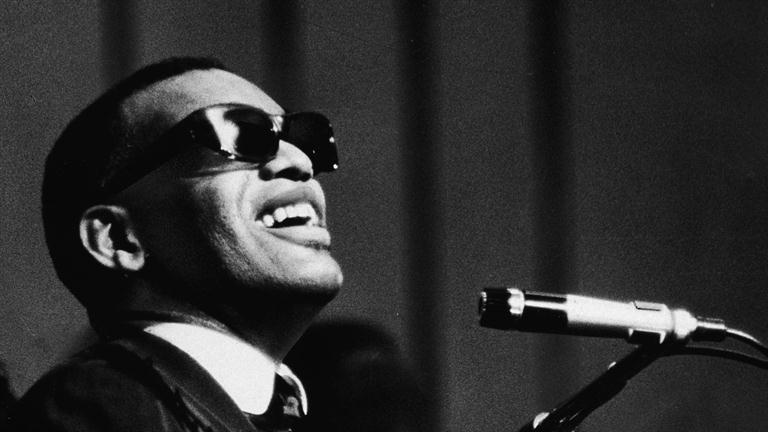
Sarah Vaughan
quotes
“I don't think I ever modeled myself after a singer. I've more or less copied the styles of horn-tooters right from the start.”
“When I sing, trouble can sit right on my shoulder and I don't even notice.”
“I just sing. I sing whatever I can.”
Sarah Lois Vaughan or Sassy was born in Newark, New Jersey, on March 27, 1924. Her parents were musicians. Growing up in Newark, a young Sarah Vaughan studied the piano and organ, and her voice could be heard as a soloist at Mount Zion Baptist Church.
Vaughan's first step toward becoming a professional singer was taken at a talent contest held at Harlem's Apollo Theater, where many African-American music legends made their name. She won the competition.
She caught the attention of vocalist, Billy Eckstine, who persuaded Earl Hines to hire Vaughan to sing with his orchestra. The next decade saw Vaughan produce more pop music, though when she joined Mercury Records she also recorded jazz numbers. In front of an audience, her emotional, vibrato-rich delivery, three-octave vocal range and captivating scat technique were even more appealing.
Vaughan's final concert was given at New York's Blue Note Club in 1989. She passed away from lung cancer on April 3, 1990, at age 66, in Hidden Hills, a suburb of Los Angeles, California.
Throughout her career, Vaughan was recognized as a supremely gifted singer and performer. She was invited to perform at the White House and at venues like Carnegie Hall, was awarded a Lifetime Achievement Grammy in 1989 and was selected to join the Jazz Hall of Fame in 1990. She also received a star on the Hollywood Walk of Fame.
Peter Gunn
Every night your line is busy
All that buzzin' makes me dizzy
Couldn't count on all my fingers
All the dates you had with swingers
Bye, bye, bye, baby
I'm gonna kiss you goodbye and go right through that doorway
So long, I'm leaving
This is the last time we'll meet on the street going your way
Don't look surprised, you know you've buttered your bread
So now it's fair, you should stare at the back of my head
If you write a letter to me
My former friend, don't you end with an RSVP
I'm going bye, bye, I'm moving
Tomorrow I may be splittin' to Britain or Norway
I'm saying bye, bye, bye baby
Now that I heard all that jazzing whereas I have had it, I've had it
I'm through now with you now
So baby it's au revouir
Adios, ciao, ciao, goodbye
I love you
I love you an' don't you forget it,
I love you an' don't you forget it,
I love you an' don't you forget it, baby!
Love me too an' you won't regret it,
Love me too an' you won't regret it,
Love me too an' you won't regret it, baby!
I love you an' don't you forget it,
I love you an' don't you forget it,
I love you an' don't you forget it, baby!
I love you an' don't you forget it,
That makes seven times that I've said it,
I don't see how you can forget it now!
I love you in the springtime,
I love you in the fall,
I love you at a party,
We always have a ball!
And when you're in my arms dear,
I love you most of all . . .
In the morning an' in the evening,
An' when it's cloudy or clear,
I'm in love with you, so in love with you,
Every day of the year!
I love you an' don't you forget it,
I love you an' don't you forget it,
I love you an' nun't you forget it, baby!
Love me too an' you won't regret it,
Love me too an' you won't regret it,
Love me too an' you won't regret it, baby!
I love you an' don't you forget it,
I love you an' don't you forget it,
I love you an' don't you forget it, baby!
I love you an' don't you forget it,
That makes twenty times that I've said it,
I don't see how you can forget it now!
[ pause ]
I love you an' don't you forget it,
There, that's one more time that I've said it,
I don't see how you can forget it now!
Louis Armstrong
Louis Armstrong is an American jazz legend, the first important soloist in jazz, and he became the most influential musician in the music's history
Armstrong was born in 1901 in New Orleans, Louisiana. He grew up in a rough section of New Orleans, with little to eat and few clothes to wear. As a boy, Armstrong fell in love with jazz music. He decided to be a musician but had no money to buy an instrument.
When Armstrong was about 12 years old, something happened that changed the direction of his life. On New Year’s Eve, 1913, when Armstrong was celebrating, he fired a gun into the air. An angry police officer arrested him and he was sent to a reform school for boys.
Fortunately, the school’s musical director recognized Armstrong’s talent and taught him to sing and play the cornet. After he was released from the boys’ home, he worked as a laborer by day and played with local bands at night. He borrowed a horn until he had money to buy one.
By 1918, Armstrong was playing on riverboats and with good black bands around New Orleans. In 1922, he moved to Chicago to play with the Creole Jazz Band, a legend in jazz circles. In 1924, he moved to New York and Armstrong joined the Fletcher Henderson Band. His musical talent grew quickly during this time.
In 1925, Armstrong went back to Chicago. Between 1925 and 1928, he recorded the “Hot Five” series of jazz records. Many people think this is the best jazz ever recorded. Armstrong became a role model for many jazz players.
In the early 1930s Armstrong started to travel all over the United States and Europe and soon became one of the most famous men in America.
In the 1930s and 1940s, Armstrong played and sang with his own big dance band. He became known as much for his singing as his playing. He also appeared in movies and on the radio.
By 1945, big bands were no longer popular, so Armstrong formed a smaller group called the All Stars.
His popularity and his commercial success grew throughout the 1950s and 1960s. His 1964 record, “Hello, Dolly,” and the 1968 song, “What A Wonderful World” both became number one hits.
Armstrong was married two more times, in 1938 to Alpha Smith and in 1942 to Lucille Wilson. He had no children. He died in 1971.
.
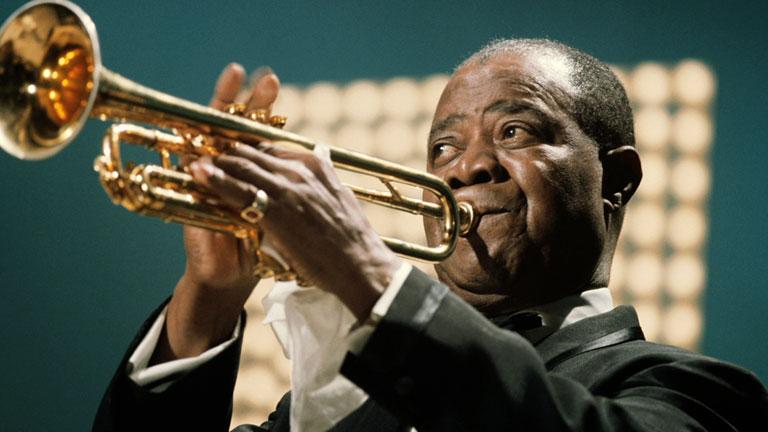
What a Wonderful World
I see trees of green, red roses too
I see them bloom for me and you
And I think to myself what a wonderful world.
I see skies of blue and clouds of white
The bright blessed day, the dark sacred night
And I think to myself what a wonderful world.
The colors of the rainbow so pretty in the sky
Are also on the faces of people going by
I see friends shaking hands saying how do you do
They're really saying I love you.
I hear babies cry, I watch them grow
They'll learn much more than I've ever know
And I think to myself what a wonderful world
Yes I think to myself what a wonderful world.
Oh yeah!
Какой замечательный мир
Я вижу зеленые деревья, красные роз также
Я вижу, что они цветут для меня и Вас
И я думаю про себя "какой замечательный мир."
Я вижу синие небеса и белые облака
Яркий счастливый день, темная священная ночь
И я думаю про себя "какой замечательный мир."
Цвета радуги столь довольно в небе
Находятся также на лицах проходящих людей,
Я вижу, что друзья обмениваются рукопожатием, говоря как дела
Они действительно говорят, что я люблю Вас.
Я слышу крик младенцев, я вижу, как они растут
Они выучат намного больше, чем я когда-либо знал
И я думаю про себя "какой замечательный мир"
Да я думаю про себя "какой замечательный мир".
Джаз – Кафе «The All Stars»
Джаз – великая культура. Кто-то говорит - «Я не понимаю джаз». Но я думаю, что не нужно описывать джаз, вы просто слушайте его. Джаз дал начало рок-н-роллу и был стартовой ступенью для многих исполнителей. Джаз был создан в Соединенных Штатах чернокожими американцами. Это смесь разных видов музыки. Это сочетание музыки Западной Америки, песен, которые пели рабы и религиозной музыки. Джазовые бэнды были созданы в конце 1800. Импровизация является важной частью джаза. Джаз становился все более и более популярным. Сегодня люди во всем мире играют джаз. Те, кто, любит джаз, всегда могут назвать великих джазовых певцов, музыкантов, таких как как Луис Армстронг Элла Фицджеральд Дюк Эллингтон, Каунт Бейси и Нат Кинг Коул, Фрэнк Синатра, Диззи Гиллеспи и Бенни Гудман и знаменитый джаз-бэнд Армстронга «The all stars». Наш урок посвящен этим музыкантам. Мы будет слушать их музыку, рассказывать их биографии и мы постараемся даже исполнить их песни, конечно, не профессионально, но все же...
Элла Фицджеральд
Биография
Признанная «Первая леди песни», Элла Фицджеральд была самая популярная певица джаза в Соединенных Штатах более чем половину столетия. За всю свою жизнь она получила 13 наград Грэмми, было продано более 40 миллионов альбомов.
Ее голос был гибким, широкого диапазона, точный и нестареющий. Она могла петь знойные баллады, сладкий джаз и имитировать любой инструмент в оркестре. Она работала со всеми великими джаз музыкантами, такими как Дюк Эллингтон, Каунт Бейси и Нат Кинг Коул, Фрэнк Синатра, Диззи Джиллспи и Бенни Гудмен.
Она выступала в лучших местах по всему миру. Ее слушатели были так же разнообразны, как её вокальный диапазон. Они были богатыми и бедными, всех рас, всех религий и всех национальностей. На самом деле, этих людей связывал между собой только один фактор - все они любили ее.
Элла Джейн Фицджеральд родилась 25 апреля 1917 года в Ньюпорт-Ньюс, штат Вирджиния. Ее отец, Уильям и мать, Темперанс (Teмпи), разошлись вскоре после ее рождения. Вместе мамой они переехали в Йонкерс, Нью Йорк. In 1932 Teмпи умирает , оставляя глубоко несчастную Эллу одну.
Жаловаться Элле было некому. Позже она часто вспоминала самые трудные годы с признательностью за то, что они помогли ей стать той, кем она была. Она использовала воспоминания этих времен, чтобы помочь собрать эмоции для выступления, и почувствовать, как она благодарна успеху, потому что знала, каково это-бороться за жизнь.
В 1987 году президент США Рональд Рейган наградил Эллу Национальной медалью за вклад в искусство. В 1990-х, Элла записала более 200 альбомов. В 1991 году она дала свой заключительный концерт в Нью-Йоркском Карнеги-Холл.
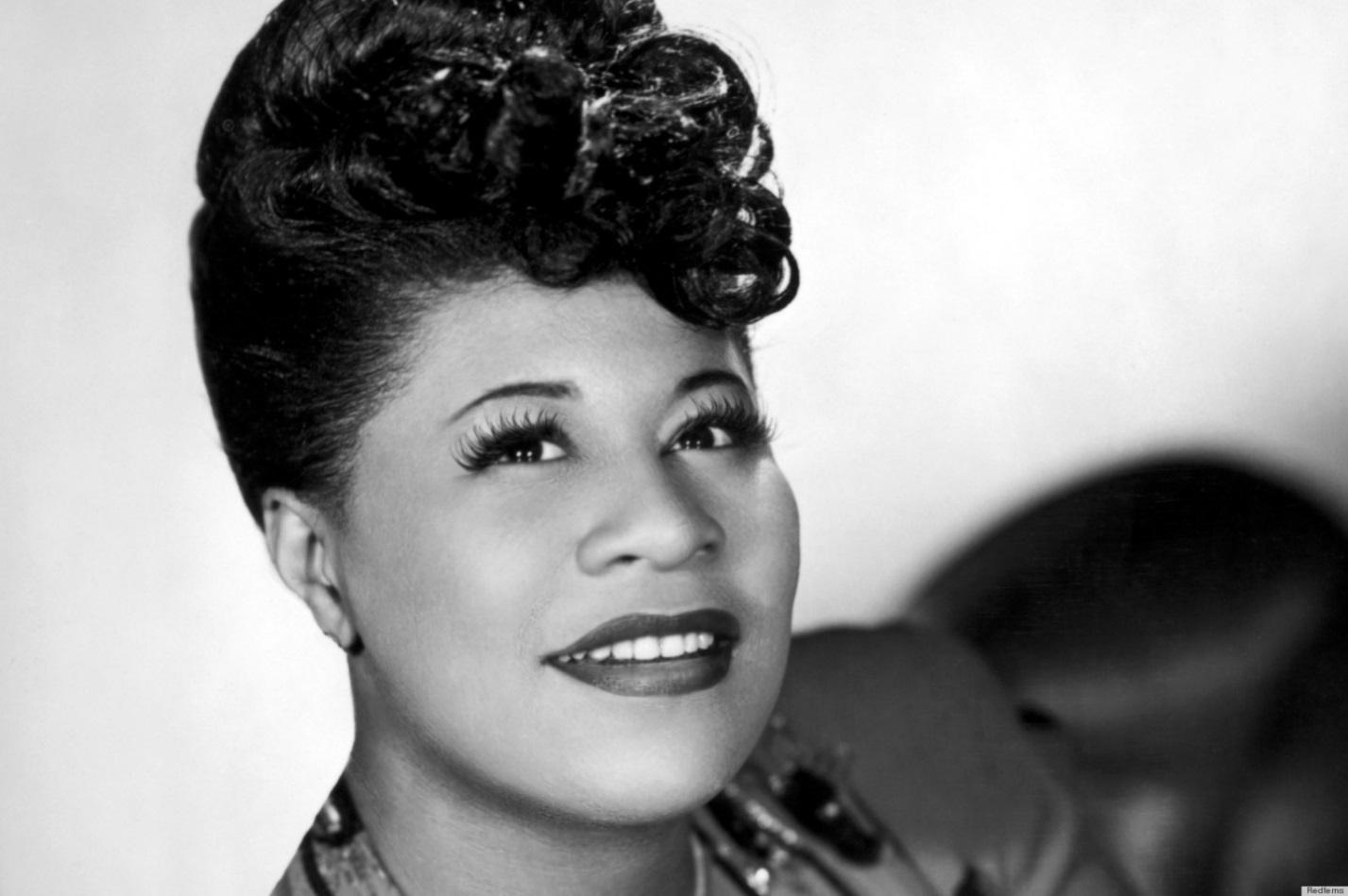
Let it snow!
Oh the weather outside is frightful
But the fire is so delightful
And since we've no place to go
Let It Snow! Let It Snow! Let It Snow!
Man it doesn't show signs of stopping
And I've brought some corn for popping
The lights are turned way down low
Let It Snow! Let It Snow!
When we finally kiss goodnight
How I'll hate going out in the storm!
But if you'll really hold me tight
All the way home I'll be warm
And the fire is slowly dying
And, my dear, we're still good-byeing
But as long as you'd love me so
Let It Snow! Let It Snow! And Snow!
When we finally kiss goodnight
How I'll hate going out in the storm!
But if you'll really grab me tight
All the way home I'll be warm
The fire is slowly dying
And, my dear, we're still good-byeing
But as long as you'd love me so
Let It Snow! Let It Snow! Let It Snow!
Рэй Чарльз
Биография
Рэй Чарльз был пионером соул-музыки, интегрируя R&B, госпел, поп и кантри музыку , создавая такие хиты, как «Unchain My Heart», «Hit the Road Jack» и «Georgia on My Mind». «Слепой гений», считается одним из величайших художников всех времен.
Рэй Чарльз Робинсон родился 23 сентября 1930 года в Олбани, штат Джорджия. Его отец, механик и его мать, издольщица, переехали в Гринвилль, штат Флорида, когда он был младенцем. Одним из самых травмирующих событий его детства, свидетелем которого он стал, была смерть младшего брата. Вскоре после смерти брата Чарльз постепенно начал терять зрение. Он ослеп полностью в 7 лет, и его мать отдала его в школу для глухих и слепых, во Флориде Санкт-Августин,— где он научился читать, писать и оранжеровать музыку. Он также научился играть на фортепиано, органе, саксофоне, кларнете и трубе.
Мать Чарльза умерла, когда ему было 15 лет, и в течение года он гастролировал с «Chitlin 'Circuit» на юге. В 1949 году он выпустил свой первый сингл, «Confession Blues» с трио Максин. Год спустя, Чарльз теперь с классической песней, «I Got a Woman» достиг № 1 в чарте R&B.
Музыканты стали называть Чарльза «гением», потому что никогда не работал в только одном стиле, но смешивал и превращал в красивое все, чего бы он ни коснулся (он также заработал прозвище «Отец души»). 1960 год принес Чарльзу первую Грэмми за «Georgia on My Mind, за ним последовала другая награда Грэмми за сингл «Hit the Road, Jack».
За все время Чарльз записал более чем 60 альбомов и дал более чем 10 000 концертов. Он умер 10 июня 2004 года в своем доме в Беверли Хиллз, Калифорния.
Ray Charles - Hit The Road Jack
Hit the road Jack and don't you come back no more, no more, no more, no more.)
(Hit the road Jack and don't you come back no more.)
What you say?
(Hit the road Jack and don't you come back no more, no more, no more, no more.)
(Hit the road Jack and don't you come back no more.)
Woah Woman, oh woman, don't treat me so mean,
You're the meanest old woman that I've ever seen.
I guess if you said so
I'd have to pack my things and go. (That's right)
(Hit the road Jack and don't you come back no more, no more, no more, no more.)
(Hit the road Jack and don't you come back no more.)
What you say?
(Hit the road Jack and don't you come back no more, no more, no more, no more.)
(Hit the road Jack and don't you come back no more.)
Now baby, listen baby, don't ya treat me this-a way
Cause I'll be back on my feet some day.
(Don't care if you do 'cause it's understood)
(you ain't got no money you just ain't no good.)
Well, I guess if you say so
I'd have to pack my things and go. (That's right)
(Hit the road Jack and don't you come back no more, no more, no more, no more.)
(Hit the road Jack and don't you come back no more.)
What you say?
(Hit the road Jack and don't you come back no more, no more, no more, no more.)
(Hit the road Jack and don't you come back no more.)
Well
(don't you come back no more.)
Uh, what you say?
(don't you come back no more.)
I didn't understand you
(don't you come back no more.)
You can't mean that
(don't you come back no more.)
Oh, now baby, please
(don't you come back no more.)
What you tryin' to do to me?
(don't you come back no more.)
Oh, don't treat me like that
(don't you come back no more.)

Сара Воэн
Цитата
«Не думаю, что я хотела быть певицей. Я только чуть – чуть пыталась скопировал стиль horn-tooters»
«Когда я пою, неприятности могут сидеть прямо на моем плече, и я их даже не замечают». «Я просто пою. Я пою, как я могу».
Биография
Сара Воэн Лоис или Сэсси родилась в Ньюарке, Нью-Джерси, 27 марта 1924 года. Ее родители были музыкантами. Выросшая в Ньюарке, молодая Сара Воэн изучала фортепиано и орган, и можно было услышать ее голос в баптистской церкви.
Первые шаги Воэн стать профессиональной певицей были предприняты на конкурсе талантов в Apollo Theater в Гарлеме, где много легенд афро-американской музыки сделал себе имя. Она выиграла конкурс.
Она привлекла внимание вокалиста, Билли Экстайна, убедившим Эрла Хайнса нанять Воэн петь с его оркестром. В следующем десятилетии Воэн исполняет больше поп-музыку, хотя, когда она присоединилась к Mercury Records она также записала несколько пластинок с джазом. Перед аудиторией ее эмоциональная, богатая вибрато, поразительная техника исполнения джаза «скат» с 3 октавным вокальным диапазоном стала еще более привлекательной.
Заключительный концерт Воэн был дан в Blue Note клубе в Нью-Йорке в 1989. Она умерла от рака легких 3 апреля 1990 года, в возрасте 66, в пригороде Лос-Анджелеса, штат Калифорния.
Во время своей карьеры Воэн была признана самой талантливой певице. Она выступала Белом Доме и на сцене Карнеги-холл, в 1989 она получила Пожизненную Грэмми за ее достижения, и была выбрана для Зала Славы Джаза в 1990 году. Она также получила звезду на Аллее Славы в Голливуде.
Peter Gunn
Every night your line is busy
All that buzzin' makes me dizzy
Couldn't count on all my fingers
All the dates you had with swingers
Bye, bye, bye, baby
I'm gonna kiss you goodbye and go right through that doorway
So long, I'm leaving
This is the last time we'll meet on the street going your way
Don't look surprised, you know you've buttered your bread
So now it's fair, you should stare at the back of my head
If you write a letter to me
My former friend, don't you end with an RSVP
I'm going bye, bye, I'm moving
Tomorrow I may be splittin' to Britain or Norway
I'm saying bye, bye, bye baby
Now that I heard all that jazzing whereas I have had it, I've had it
I'm through now with you now
So baby it's au revouir
Adios, ciao, ciao, goodbye
I love you
I love you an' don't you forget it,
I love you an' don't you forget it,
I love you an' don't you forget it, baby!
Love me too an' you won't regret it,
Love me too an' you won't regret it,
Love me too an' you won't regret it, baby!
I love you an' don't you forget it,
I love you an' don't you forget it,
I love you an' don't you forget it, baby!
I love you an' don't you forget it,
That makes seven times that I've said it,
I don't see how you can forget it now!
I love you in the springtime,
I love you in the fall,
I love you at a party,
We always have a ball!
And when you're in my arms dear,
I love you most of all . . .
In the morning an' in the evening,
An' when it's cloudy or clear,
I'm in love with you, so in love with you,
Every day of the year!
I love you an' don't you forget it,
I love you an' don't you forget it,
I love you an' nun't you forget it, baby!
Love me too an' you won't regret it,
Love me too an' you won't regret it,
Love me too an' you won't regret it, baby!
I love you an' don't you forget it,
I love you an' don't you forget it,
I love you an' don't you forget it, baby!
I love you an' don't you forget it,
That makes twenty times that I've said it,
I don't see how you can forget it now!
[ pause ]
I love you an' don't you forget it,
There, that's one more time that I've said it,
I don't see how you can forget it now!
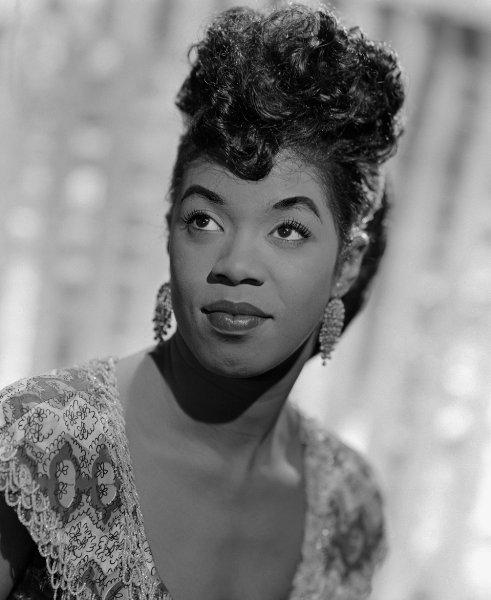
Луис Армстронг
Луис Армстронг — американская легенда джаза, первый солист джаза, он стал наиболее влиятельным музыкантом в истории музыки.
Армстронг родился в 1901 году в новом Орлеане, штат Луизиана. Он вырос в неблагополучном районе Нового Орлеана, зачастую ему нечего было что поесть и одеть. С детских лет Армстронг влюбился в с джаз. Он решил стать музыкантом, но у него не было денег, чтобы купить инструмент.
Когда Армстронгу было около 12 лет, случилось кое–что, что изменило направление его жизни. В канун нового года, 1913 г., во время празднования, он выстрелил из пистолета в воздух. Сердитый полицейский арестовал его, и он был отправлен в исправительную школу для мальчиков.
К счастью, музыкальный директор школы признал талант Армстронга и научил его петь и играть на корнете. После того, как он был отпущен из исправительной школы, днем он работал чернорабочим, а в ночное время играл с местными группами. Он взял взаймы трубу, пока не заработал денег, чтобы купить ее.
В 1918 Армстронг выступает с джазовыми бэндами по всему Орлеану . В 1922 году он переехал в Чикаго, чтобы играть с Creol Jazz Band, легендой в джазовых кругах. В 1924 году он вернулся обратно в Нью-Йорк и присоединился к группе Хэнжнрсон Флетчер.
Его музыкальный талант быстро развивался в течение этого времени. В 1925 году Армстронг вернулся в Чикаго. С 1925 по 1928 года он записал «Hot Five» серию джазовых записей. Многие люди считают, что это лучшее исполнение джаза, которое было когда-либо записано.
Армстронг стал образцом для многих исполнителей джаза. В начале 1930-х годов Армстронг начал ездить с гастролями по всей Европе и Соединенным Штатам Америки и вскоре стал одним из самых известных музыкантов в Америке.
С 1930 по 1940 он выступает со своим биг бэндом и становится больше известен как исполнитель песен. Он так же снимается в фильмах и выступает на радио.
В 1945 году биг бэнды уже не популярны, и Армстронг начинает работать с маленьким коллективом под названием « Тhe All Stars».
Популярность и успех стремительно растут с 1950 по 1960. Его песни «Hello, Dolly,» (1964) b “What A Wonderful World” (1968) становятся хитами №1.
Армстронг был женат 2 раза, но детей у него не было. Он умер в 1971.
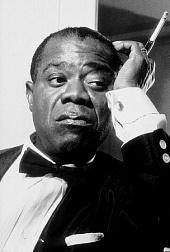
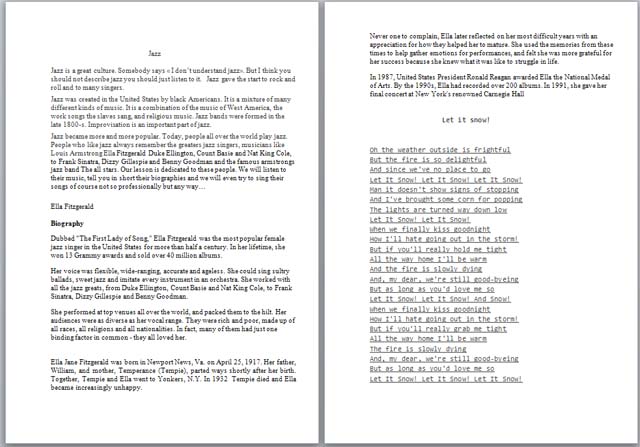

 Получите свидетельство
Получите свидетельство Вход
Вход
















 The all stars (материал к уроку) (0.39 MB)
The all stars (материал к уроку) (0.39 MB)
 0
0 590
590 12
12 Нравится
0
Нравится
0


